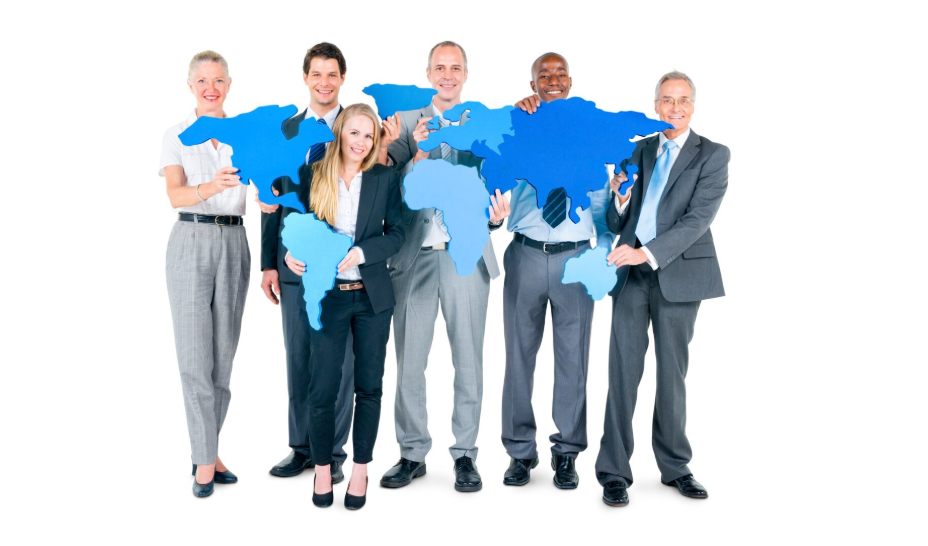
by Dulce Navarro | May 28, 2025 | Business, Company, Countries, Culture, Europe, Residency, Travel, Work
Everything You Need to Know About Digital Nomad Visas in France
With the rise of remote work and the growing popularity of location-independent lifestyles, France has emerged as a desirable destination for digital nomads. Combining world-class infrastructure, rich culture, and high living standards, the country offers an attractive base for entrepreneurs and remote professionals alike. But what are the actual options for legally staying and working in France as a digital nomad?
Understanding the Concept of a Digital Nomad Visa
Many countries have launched specific visas tailored for digital nomads—professionals who work remotely and often change locations. While France doesn’t yet offer a visa specifically called the “Digital Nomad Visa,” it does provide several legal pathways for remote workers, freelancers, and entrepreneurs who want to live and work in the country.
Who Qualifies as a Digital Nomad in France?
In the French context, a digital nomad typically falls into one of the following categories:
- Freelancers providing services to clients outside France
- Remote employees of foreign companies
- Entrepreneurs running online or location-independent businesses
French immigration regulations don’t explicitly recognize the term “digital nomad,” but many professionals can still legally reside in France under alternative visa types.
Visa Options for Digital Nomads in France
1. Long-Stay Visa (Visa de Long Séjour – VLS-TS)
The Long-Stay Visa allows non-EU citizens to stay in France for over 90 days. Digital nomads can apply for a “Visitor” visa, which does not permit working for a French employer but allows you to continue working remotely for companies based abroad.
Key Requirements:
- Proof of sufficient financial means (around €1,329/month)
- Health insurance coverage
- Proof of accommodation in France
2. Profession Libérale Visa
This visa is ideal for freelancers or self-employed individuals offering services as independent contractors. Applicants must register their business in France and demonstrate professional viability.
Key Requirements:
- Business plan
- Financial projections
- Relevant professional experience
3. Talent Passport: Business Creation or Innovative Project
This is a more advanced route for entrepreneurs looking to create a business in France, particularly in tech or innovation. It’s part of France’s broader strategy to attract international talent and investment.
Key Benefits:
- Four-year residency permit
- Includes family members
- Eligibility for French healthcare and tax benefits
Application Process
Applying for any of the above visas typically involves several steps:
- Determine the appropriate visa based on your work setup
- Apply through the French consulate in your home country
- Submit supporting documents, including financial statements, contracts, and insurance
- Wait for approval (processing times vary from a few weeks to several months)
What to Consider Before Moving to France as a Digital Nomad
Living in France can be a dream come true, but it requires preparation. Consider the following:
Cost of Living
France, especially cities like Paris and Lyon, can be expensive. Budgeting for housing, health insurance, and taxes is essential.
Language Barrier
French is the official language, and while many people speak English in larger cities, learning basic French will help tremendously with integration and daily life.
Tax Obligations
France has a complex tax system. Depending on your visa type and length of stay, you may become a French tax resident. Consulting with an accountant familiar with expat taxation is strongly advised.
The Benefits of Being a Digital Nomad in France
Despite some bureaucratic challenges, France offers numerous advantages to digital nomads:
- Excellent healthcare system
- Reliable internet and infrastructure
- Efficient public transport
- Vibrant culture and lifestyle
- Central location in Europe for easy travel
Plus, there are plenty of coworking spaces, digital nomad meetups, and international communities to connect with other professionals.
Learning New Languages as an Expat: Strategies for Quick Success
One of the most powerful tools for integration and personal growth as an expat is language acquisition. Whether you’re learning French for day-to-day communication or another language for business purposes, the following strategies can help accelerate your learning:
- Daily Immersion: Label household items, change your phone language, and listen to local radio or podcasts.
- Language Apps: Duolingo, Babbel, and Pimsleur offer structured daily practice.
- Private Tutors: Platforms like iTalki and Preply let you schedule lessons tailored to your goals.
- Community Involvement: Attend local events, language exchanges, and volunteer opportunities to use the language in real-life settings.
- Stay Consistent: Even 15–30 minutes a day can lead to real progress over time.
Remember, language skills don’t just help with logistics—they also deepen your experience of the culture, improve professional relationships, and open up new opportunities.
Stay Connected for More Travel and Lifestyle Inspiration.
For more insights into travel, culture, and lifestyle tips, follow me on @salvadorordorica. If you’re seeking professional translation and localization services to enhance your global ventures, visit The Spanish Group — your trusted partner in bridging cultures worldwide.

by Dulce Navarro | May 28, 2025 | Business, Company, Culture, Lifestyle, Residency, Work
Top Coworking Spaces in Paris for Remote Workers and Entrepreneurs
As the remote work revolution continues to reshape the way professionals operate, Paris has quickly emerged as a top destination for digital nomads, freelancers, and entrepreneurs. With its rich culture, vibrant neighborhoods, and world-class infrastructure, the City of Light offers more than just picturesque views — it also boasts an impressive array of coworking spaces tailored to every type of worker.
1. Station F – The World’s Largest Startup Campus
Located in the 13th arrondissement, Station F is not just a coworking space — it’s a startup ecosystem. Home to over 1,000 startups, it offers cutting-edge facilities, top-tier networking opportunities, and specialized programs for entrepreneurs. With dedicated workspaces, meeting rooms, and an on-site restaurant by celebrated chef Alain Ducasse, Station F is a powerhouse for tech and innovation-driven professionals.
2. WeWork – Global Brand with Parisian Flair
WeWork has multiple locations throughout Paris, including spots in the 9th and 8th arrondissements. With stylish interiors, high-speed internet, and community-focused events, WeWork provides a consistent, professional environment for remote workers who want reliable amenities and global access. Their locations near Opéra and Champs-Élysées offer the perfect blend of productivity and inspiration.
3. Anticafé – Where Coffee Meets Coworking
If you’re looking for a more casual yet functional coworking space, Anticafé might be your go-to. With multiple locations including Beaubourg and Louvre-Rivoli, this pay-by-the-hour space offers unlimited coffee, snacks, and a cozy atmosphere. Ideal for creatives and freelancers who enjoy working in vibrant, café-like settings with a strong community vibe.
4. Hubsy – Ideal for Solopreneurs and Digital Nomads
Hubsy has carved out a niche as a hybrid café-coworking space that feels both warm and productive. With sites near République, Saint-Lazare, and Arts et Métiers, Hubsy caters to solopreneurs and digital creatives who value flexibility and aesthetics. The hourly pricing model includes access to high-speed Wi-Fi, printing services, and a bottomless coffee bar.
5. Wojo – Corporate Meets Creative
Wojo (formerly Nextdoor) offers several locations across Paris and focuses on combining a professional environment with creative energy. Backed by AccorHotels, Wojo is ideal for remote teams and consultants who seek premium services like concierge support, private offices, and event spaces. Locations in Montparnasse and Madeleine provide easy access and impressive design.
6. La Permanence – 24/7 Access for the Night Owls
For those with unconventional work hours, La Permanence is open 24/7 and offers a no-frills, affordable coworking experience. Located in the Latin Quarter, it attracts students, freelancers, and bootstrapped entrepreneurs who prioritize flexibility and value. With simple hourly rates and no commitment, it’s a practical option for night owls and weekend warriors.
7. Morning Coworking – A Parisian Network of Productivity
Morning Coworking has over 20 locations in Paris, each uniquely styled with artful interiors, greenery, and a community-centric ethos. These spaces are particularly attractive to small teams and growing startups. Morning emphasizes well-being with yoga classes, workshops, and breakout zones to foster creativity and connection.
8. The Bureau – Luxury Coworking in the Heart of Paris
The Bureau offers a high-end coworking experience tailored to executives and established entrepreneurs. Located near the Champs-Élysées, it features designer interiors, Michelin-quality cuisine, and a curated calendar of cultural events. If you’re looking to impress clients or work in a luxurious environment, The Bureau sets the standard.
9. Kwerk – Where Wellness Meets Work
Kwerk merges productivity with well-being through its wellness-focused coworking philosophy. With stunning architecture, wellness classes, and ergonomic design, Kwerk encourages a healthier, more balanced workday. Their Madeleine and Haussmann locations attract forward-thinking professionals who value both success and self-care.
10. Remix Coworking – Community-Led and Creatively Driven
Remix is a boutique coworking space with locations in République, Sentier, and Place de Clichy. Known for its strong community and creative atmosphere, Remix is perfect for designers, marketers, and other digital professionals who thrive on collaboration and shared energy. The curated member base ensures valuable connections and synergistic networking.
Learning New Languages as an Expat: Strategies for Quick Success
Living and working in Paris as an expat presents the unique opportunity to learn French — and learning the local language is one of the fastest ways to integrate, network, and thrive professionally. Here are a few strategies to get you started:
- Immerse Yourself: Use local resources like French podcasts, Netflix shows with subtitles, and books to train your ear and build vocabulary.
- Join Language Exchanges: Platforms like Meetup and Conversation Exchange connect expats with locals for casual language swaps over coffee.
- Enroll in Intensive Courses: Consider reputable institutions such as Alliance Française or L’Institut Catholique de Paris for structured learning.
- Practice Daily: Use apps like Duolingo, Babbel, or HelloTalk for consistent practice — even 15 minutes a day makes a difference.
- Don’t Fear Mistakes: Language acquisition thrives on trial and error. Practice often, speak with confidence, and stay consistent.
Mastering the language opens doors — from deeper friendships to new business ventures. It’s an investment that pays off personally and professionally.
Stay Connected for More Travel and Lifestyle Inspiration
For more insights into travel, culture, and lifestyle tips, follow me on @salvadorordorica. If you’re seeking professional translation and localization services to enhance your global ventures, visit The Spanish Group — your trusted partner in bridging cultures worldwide.

by Dulce Navarro | May 27, 2025 | Company, Countries, Culture, Europe, Lifestyle, Residency, Travel, Work
Becoming a Digital Nomad in Italy: Where to Live, Work, and Explore
As remote work continues to redefine traditional office culture, more professionals are embracing the digital nomad lifestyle. Among the most attractive destinations in Europe for remote workers, Italy stands out with its unique blend of history, culture, culinary excellence, and modern infrastructure. For company directors and entrepreneurs seeking the ideal balance between productivity and lifestyle, Italy offers a compelling opportunity.
Why Choose Italy for Remote Work?
Italy combines old-world charm with modern conveniences. With high-speed internet available in most urban and many rural areas, a variety of coworking spaces, and a relatively low cost of living compared to other Western European countries, Italy is uniquely positioned for digital nomads.
Additionally, the country has been actively improving its immigration policies for remote workers. Although Italy does not yet have a formal digital nomad visa, its self-employment and long-stay visas provide viable options for extended remote work stays.
Best Cities to Live and Work
1. Milan – Italy’s Business Capital
If your digital nomad journey leans toward business and finance, Milan is your ideal hub. As Italy’s financial center, Milan offers robust infrastructure, a cosmopolitan atmosphere, and extensive coworking networks like Talent Garden and Copernico. While it’s one of the more expensive Italian cities, its efficiency and energy make it ideal for those running or scaling a business.
2. Florence – A Blend of Art, Culture, and Productivity
Florence offers a slower pace while still providing the essentials for remote work. Its charming streets, Renaissance architecture, and a growing number of coworking spaces make it attractive to creative professionals. The city also has a strong community of expats and digital nomads, offering great opportunities for networking.
3. Rome – History Meets Modern Living
Rome is perfect for those who want to live among ancient ruins while maintaining access to modern-day work tools. Internet speeds are reliable in most parts of the city, and you’ll find several coworking spaces near historical landmarks. Living costs can vary significantly, but the city offers a wide range of accommodation options to suit different budgets.
4. Bologna – The Academic Hub
Known for the University of Bologna, the city fosters a youthful, intellectual atmosphere. With lower living costs and fewer tourists than cities like Rome and Florence, Bologna is an underrated gem for remote workers seeking balance. Its central location also makes it a great base for exploring the rest of Italy.
5. Palermo – Affordable Coastal Living
For those seeking a warmer climate and a relaxed lifestyle, Palermo in Sicily offers incredible value. The cost of living is significantly lower, and the city is investing in improving its digital infrastructure. While you might need to be flexible about work hours due to time zone differences, the quality of life here is hard to beat.
Where to Work: Coworking Spaces and Cafés
Italy’s coworking culture is growing rapidly. Spaces like Impact Hub (Florence), Spaces (Milan and Rome), and Regus locations throughout the country provide reliable Wi-Fi, meeting rooms, and a professional atmosphere. Many Italian cafés also accommodate remote workers, especially in university towns or business districts.
Tips for Staying Productive
- Time Management: Be mindful of time zone differences, especially when coordinating with teams or clients overseas.
- Legal Requirements: Understand your visa obligations. Consider consulting a legal expert to ensure compliance with Italian tax and residency laws.
- Routine: Establish a daily routine to separate work and leisure, especially when surrounded by Italy’s endless distractions.
Exploring Italy While Working
One of the biggest perks of remote work in Italy is the ease of travel. High-speed trains connect major cities, allowing you to explore regions like Tuscany, the Amalfi Coast, and Lake Como on weekends. You can live in one city and take day trips or short getaways without interrupting your work commitments.
Learning New Languages as an Expat: Strategies for Quick Success
Integrating into a new country is much easier when you make an effort to learn the local language. While many Italians speak English, especially in larger cities, learning Italian will open up more personal and professional opportunities.
Strategies for success:
- Immerse Yourself: Watch Italian TV shows, listen to local music, and follow social media accounts in Italian.
- Enroll in Language Courses: Many language schools offer flexible schedules tailored for professionals.
- Use Language Apps: Apps like Duolingo, Babbel, and Tandem are great for learning on the go.
- Practice with Locals: Join local meetups, attend cultural events, or strike up a conversation at the market. Most Italians appreciate the effort and are happy to help you practice.
- Be Consistent: Make language learning part of your daily routine, even if it’s just 15 minutes a day.
Adopting even basic Italian will help you navigate daily life, build stronger relationships, and show respect for the culture that’s welcoming you.
Stay Connected for More Travel and Lifestyle Inspiration
For more insights into travel, culture, and lifestyle tips, follow me on @salvadorordorica. If you’re seeking professional translation and localization services to enhance your global ventures, visit The Spanish Group — your trusted partner in bridging cultures worldwide.

by Dulce Navarro | May 27, 2025 | Business, Company, Countries, Culture, Europe, Lifestyle, Work
Remote Work in Spain: How to Set Up Your Ideal Work-Life Balance
The global shift toward remote work has opened up exciting opportunities for professionals to explore new countries without putting their careers on hold. Among the top destinations for remote workers, Spain stands out — not only for its picturesque cities and warm climate, but also for its infrastructure, cost of living, and vibrant culture. For those considering the move, setting up a healthy and sustainable work-life balance is key to making the most of this experience.
Why Choose Spain for Remote Work?
Spain offers an exceptional lifestyle that blends productivity with well-being. The country boasts a strong digital infrastructure, a wide array of coworking spaces, and affordable living in many regions compared to other Western European nations. From cities like Barcelona and Madrid to coastal havens such as Valencia and Málaga, remote workers can choose the atmosphere that suits them best.
Spain is also part of the European Union, offering access to a large network of international professionals and services. Its Digital Nomad Visa program has made it even easier for non-EU residents to live and work in the country legally while benefiting from Spain’s high quality of life.
Key Steps to Setting Up Your Remote Life in Spain
1. Choose the Right Location
Deciding where to live is the first crucial step. While Madrid and Barcelona offer robust work environments and international networking opportunities, they can also be more expensive. Coastal cities like Alicante, Valencia, and Málaga provide a relaxed lifestyle at a lower cost, with excellent weather and strong expat communities.
2. Secure Reliable Internet
Remote work requires a stable internet connection. Fortunately, Spain has widespread high-speed fiber optic coverage, especially in cities and major towns. Make sure to confirm the internet speed and provider reliability before finalizing a lease.
3. Understand Visa and Residency Requirements
The Spanish government has introduced a Digital Nomad Visa aimed at attracting remote workers. It allows non-EU citizens to live and work in Spain for up to five years. Applicants must prove they work remotely for a non-Spanish company and meet minimum income thresholds. Legal assistance is recommended to navigate documentation and application steps.
4. Create a Balanced Daily Routine
Spain’s relaxed pace of life offers a great opportunity to establish a healthy work-life rhythm. Embrace local customs like the siesta, late lunches, and evening socializing. Begin your day early to align with global time zones and enjoy afternoons exploring the local culture, cuisine, or nature.
5. Join Local and Digital Communities
To avoid isolation, especially when working from home, join coworking spaces and remote work communities. Apps like Meetup and Internations offer local events tailored for expats and remote professionals. These networks are invaluable for both professional development and personal connection.
Living Well as a Remote Professional in Spain
Beyond logistics, thriving in Spain involves engaging with the local culture. The Mediterranean diet, outdoor lifestyle, and warm social culture promote wellness and happiness. Make time to explore local festivals, markets, and traditions — these experiences not only enrich your life but also help integrate you into the community.
Spain also provides access to high-quality, affordable healthcare — both public and private. Signing up for a private plan can be wise, especially for expats not covered by the public system initially.
Financial Considerations
Living in Spain can be cost-effective, especially compared to Northern Europe or the U.S. However, budgeting is important. Consider expenses like:
- Housing: Rents vary by city and proximity to the center.
- Transport: Spain has excellent public transit, but cars may be needed in rural areas.
- Healthcare: Private insurance plans start around €50/month.
- Taxes: Depending on your residency status, you may be subject to Spanish income tax. It’s best to consult a tax advisor familiar with international and expat issues.
Learning New Languages as an Expat: Strategies for Quick Success
Integrating into Spanish life is easier — and more rewarding — when you make the effort to learn the language. Even basic Spanish helps you navigate daily life and build deeper relationships.
Here are a few effective strategies for learning Spanish quickly:
- Immerse Yourself: Surround yourself with the language through podcasts, music, local TV, and conversations.
- Take Classes: Many cities offer affordable group or private lessons specifically for expats.
- Use Language Apps: Apps like Duolingo, Babbel, and Tandem are great for building vocabulary and grammar skills.
- Practice Daily: Set a small, achievable goal each day — like ordering in Spanish or introducing yourself to a neighbor.
- Be Patient and Consistent: Fluency doesn’t come overnight, but daily exposure and practice will pay off over time.
Adapting to a new country is an exciting challenge. With the right mindset, a clear plan, and a willingness to embrace change, remote work in Spain can become one of the most rewarding chapters of your personal and professional life.
Stay Connected for More Travel and Lifestyle Inspiration.
For more insights into travel, culture, and lifestyle tips, follow me on @salvadorordorica. If you’re seeking professional translation and localization services to enhance your global ventures, visit The Spanish Group — your trusted partner in bridging cultures worldwide.

by Dulce Navarro | May 19, 2025 | Business, Company, Culture, Languages, Worldwide
Why Language Preservation Matters in a Rapidly Globalizing World
In today’s interconnected global society, the ability to communicate across cultures has never been more essential. Yet, amid increasing globalization, thousands of languages face extinction. While we celebrate the benefits of a connected world, we must also reflect on what we risk losing — rich linguistic heritages, cultural identities, and diverse worldviews. Preserving languages isn’t just about saving words; it’s about safeguarding the soul of humanity.
The Urgency of Language Preservation
According to UNESCO, nearly half of the approximately 7,000 languages spoken today are at risk of disappearing within a few generations. This isn’t just a linguistic concern — it’s a cultural emergency. Language encapsulates history, traditions, customs, and collective memory. When a language dies, entire knowledge systems vanish with it — from indigenous medicinal practices to oral storytelling traditions passed down over centuries.
Many endangered languages lack written scripts and rely solely on oral transmission, making them particularly vulnerable. As communities assimilate into dominant cultures and younger generations adopt more globally dominant languages, the linguistic thread connecting them to their ancestors weakens and, in some cases, is severed entirely.
Why Language Loss Affects Us All
One might assume that language extinction only affects small, isolated communities. But the impact extends far beyond. Every language offers a unique lens through which to understand the world. The disappearance of linguistic diversity limits our collective ability to appreciate alternative perspectives and solutions to global challenges.
In fields like environmental science, for example, indigenous languages often contain intricate knowledge about local ecosystems that has no equivalent in mainstream languages. Losing that linguistic diversity equates to losing invaluable insights into sustainability and conservation.
Globalization: A Double-Edged Sword
Globalization has undeniably facilitated economic growth, international collaboration, and technological innovation. However, it also encourages linguistic homogenization. English, Mandarin, and Spanish dominate business, education, and media, often at the expense of less widely spoken tongues.
While it’s practical for global professionals to speak a common language, it’s also important to support multilingualism and appreciate lesser-known languages. The key lies in balance — embracing global communication without abandoning local heritage.
The Role of Technology in Language Preservation
Fortunately, technology has become a powerful ally in the fight for language preservation. Digital dictionaries, audio archives, and mobile apps are enabling communities to document, teach, and revitalize endangered languages.
Initiatives such as Google’s Endangered Languages Project and AI-powered translation tools have helped spotlight languages that were once overlooked. Social media also provides platforms for native speakers to share content in their language, engaging younger audiences and raising awareness worldwide.
What Businesses Can Do
For companies operating globally, respecting and integrating local languages into their strategy can be both socially responsible and commercially smart. Here’s how business leaders can contribute to language preservation:
- Localization: Go beyond translation. Adapt your messaging, visuals, and tone to respect local cultures and languages.
- Inclusive Hiring: Employ multilingual staff or offer language learning incentives to encourage cultural fluency.
- Support Community Projects: Partner with NGOs or fund initiatives that promote indigenous language education and media.
By valuing linguistic diversity, businesses not only build trust in new markets but also contribute to a more equitable and inclusive world.
Learning New Languages as an Expat: Strategies for Quick Success
For expats navigating new cultural landscapes, learning the local language is one of the most powerful ways to integrate and build meaningful relationships. Here are a few practical strategies to accelerate language acquisition:
- Immerse Yourself: Surround yourself with the language — watch local TV, read newspapers, and practice speaking with native speakers daily.
- Use Tech Tools: Apps like Duolingo, Babbel, and HelloTalk make language learning engaging and accessible on the go.
- Hire a Tutor: Personalized lessons can fast-track your progress and address specific challenges.
- Join Local Communities: Participate in cultural events, volunteer programs, or clubs where the local language is spoken.
- Be Patient and Consistent: Language learning is a marathon, not a sprint. Set realistic goals and stay consistent.
Not only does speaking the local language open doors professionally, but it also enriches your everyday life as an expat, fostering deeper connections and a greater sense of belonging.
Conclusion
Language is more than communication — it’s a vessel of culture, identity, and collective wisdom. In a rapidly globalizing world, preserving linguistic diversity is a responsibility we all share, from individuals to global corporations. At the same time, learning new languages continues to be one of the most rewarding investments for those living abroad or doing business across borders.
Stay Connected for More Travel and Lifestyle Inspiration.
For more insights into travel, culture, and lifestyle tips, follow me on @salvadorordorica. If you’re seeking professional translation and localization services to enhance your global ventures, visit The Spanish Group — your trusted partner in bridging cultures worldwide.

by Dulce Navarro | May 19, 2025 | Business, Company, Europe, Travel, Work, Worldwide
Preparing for Multilingual Business Trips: What Every Executive Should Know
In today’s globalized world, business leaders often find themselves crossing borders to manage operations, negotiate deals, or explore new opportunities. As exciting as international travel can be, the challenges of multilingual environments can create obstacles for even the most experienced executive. Being fully prepared is not just a matter of having your passport and itinerary ready — it’s about navigating linguistic and cultural barriers with confidence and competence.
Why Multilingual Readiness Matters
In a competitive global economy, the ability to communicate effectively in multiple languages is more than a nice-to-have — it’s a strategic advantage. Language can impact everything from deal-making and client relationships to compliance with local regulations. Miscommunications or cultural missteps can be costly, both financially and reputationally. For executives, demonstrating cultural awareness and respect can set the tone for successful international engagements.
Pre-Trip Language and Cultural Preparation
1. Research Local Customs and Etiquette
Before your trip, invest time in understanding the local culture. This includes greetings, gestures, dress codes, and business protocols. For instance, business meetings in Japan often begin with a bow, while a firm handshake is standard in the U.S. Misinterpreting local etiquette can unintentionally offend your hosts or colleagues.
2. Learn Key Phrases
While you may not be fluent in the local language, knowing a few essential phrases can go a long way in establishing rapport. Learn how to say “hello,” “thank you,” “please,” and basic business terms like “meeting,” “contract,” or “presentation.” Apps like Duolingo, Babbel, or Memrise can be great for learning on the go.
3. Bring a Trusted Interpreter or Use Translation Services
If you’re engaging in complex negotiations or legal discussions, having a professional interpreter or translator by your side can prevent misunderstandings. Services like The Spanish Group offer certified translation and localization services that can support your needs before, during, and after your trip.
Technology Tools for Multilingual Business Travel
1. Translation Apps and Devices
Tools like Google Translate, iTranslate, and Pocketalk devices are essential for on-the-fly translations. These tools can help with everything from reading menus to understanding transportation signs or business documents.
2. Mobile Connectivity
Ensure that your mobile device has international coverage or a local SIM card. Being connected allows you to access translation tools, navigate cities, and stay in touch with both local and remote teams.
3. Calendar and Time Zone Management
Time differences can disrupt schedules if not carefully managed. Use scheduling tools like Google Calendar or World Time Buddy to coordinate meetings across time zones. Always double-check local holidays or working hours to avoid unexpected delays.
Multilingual Communication Best Practices
1. Speak Clearly and Avoid Idioms
Even when speaking in English, avoid using idiomatic expressions or slang that may confuse non-native speakers. Use clear, concise language and be patient during conversations.
2. Confirm Understanding
Don’t assume everything has been understood. Summarize key points and ask for confirmation, especially when discussing important figures, dates, or agreements. This can be done diplomatically and ensures both parties are aligned.
3. Provide Translated Materials
If you’re giving a presentation or sharing documentation, offer translations in your counterpart’s native language. This demonstrates respect and professionalism while increasing comprehension. Partnering with certified translators ensures the accuracy of legal or technical content.
Cultural Intelligence for Executive Travelers
Cultural intelligence (CQ) is the ability to relate to and work effectively across cultures. Executives with high CQ are better equipped to lead diverse teams, enter new markets, and foster strong international relationships. This involves more than just language — it includes emotional intelligence, adaptability, and curiosity about other cultures.
Engaging in pre-trip briefings, participating in cross-cultural training sessions, or working with a cultural advisor can significantly improve your interactions abroad. Empathy, openness, and respect go a long way in building long-term business relationships across borders.
Learning New Languages as an Expat: Strategies for Quick Success
If your business travel eventually turns into an expat assignment, learning the local language becomes essential. Here are a few strategies for quick and practical success:
- Immersive Learning: Surround yourself with the language — read local newspapers, watch TV shows, and engage in everyday conversations.
- Language Exchange: Partner with a native speaker who wants to learn your language in return. It’s a cost-effective and personal way to learn.
- Online Tutoring: Platforms like italki or Preply connect you with native tutors for flexible, one-on-one lessons tailored to your schedule and goals.
- Consistency Over Perfection: Focus on daily practice rather than perfect grammar. The more you use the language in real-life situations, the faster you’ll progress.
- Professional Support: If you’re managing teams or making high-stakes decisions, consider professional coaching in business language and communication skills.
Language learning isn’t just about vocabulary — it’s about connection. The better you understand the language and culture of your host country, the more effective, trusted, and respected you’ll be in your international role.
Stay Connected for More Travel and Lifestyle Inspiration. For more insights into travel, culture, and lifestyle tips, follow me on Instagram @salvadorordorica. If you’re seeking professional translation and localization services to enhance your global ventures, visit The Spanish Group — your trusted partner in bridging cultures worldwide.






